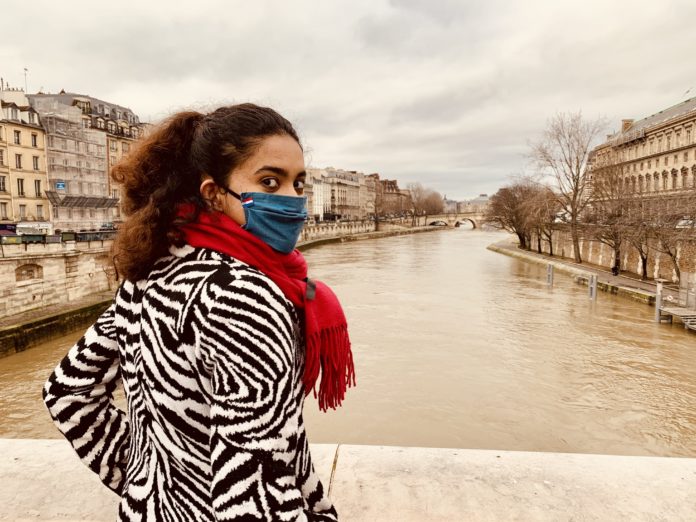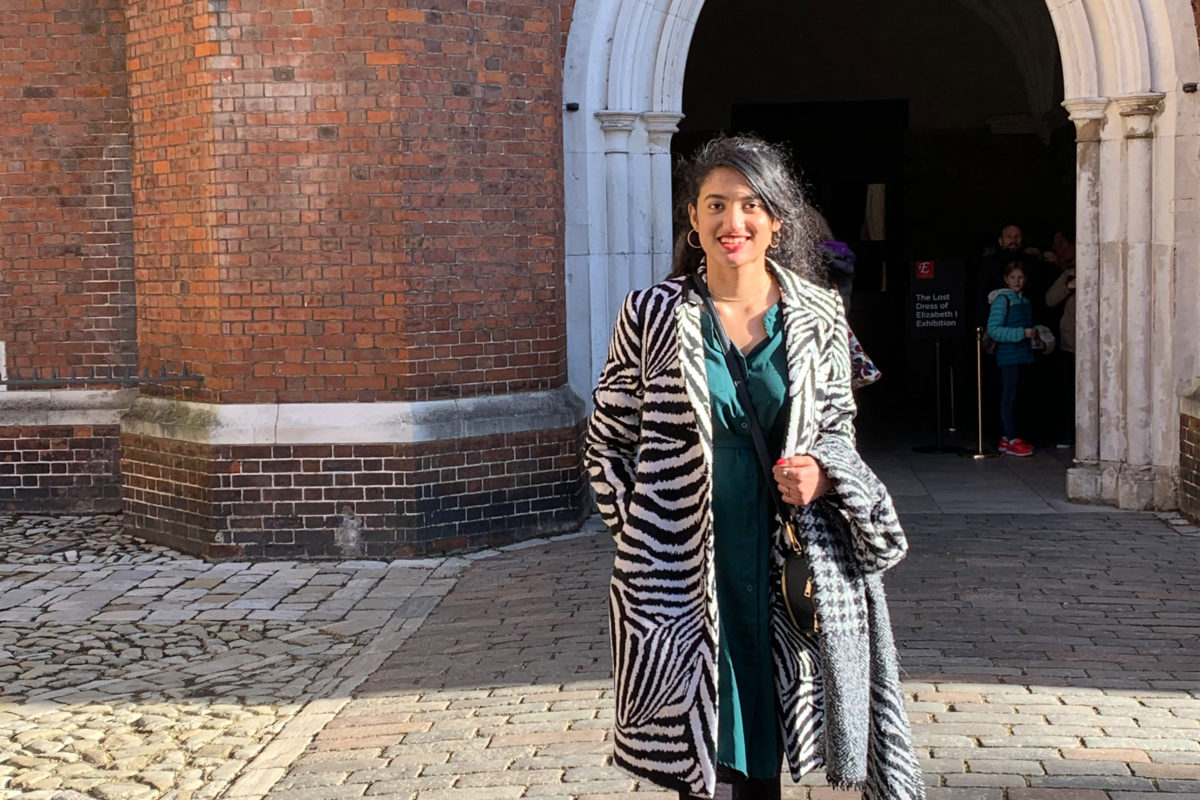

I had always yearned for an international life, but COVID-19 is the worst nightmare come true for someone from India who studies in Canada and has a partner from France.
Travelling while studying and interning remotely was an idea that I always entertained in the pre-COVID-19 world. When St. Thomas University announced that the 2020-2021 academic year would be online, I was excited.
I had just returned from my exchange semester in London. The exchange started off with Taylor Swift’s “London Boy” in my ears while travelling on the tube and exploring SoHo, Shoreditch and Camden Market. But the trip ended with me listening to “If the World Was Ending,” while looking for affordable housing and waiting for repatriation flights from India after Canada shut its doors to everyone except its citizens and permanent residents.
With this somewhat traumatic experience a few months behind me, I was not eager to take an airplane back to Canada. I was afraid of being stuck in a foreign country, unable to see my family for long periods of time during a time of uncertainty.
My online learning experience in India started off on a great note. There was an eight-hour time difference between my home state of Kerala in southern India and Fredericton, N.B., but I was game. Much like the world, COVID-19 brought out the discrepancies of the Indian education systems.
The TV channels were flooded with news about students dying by suicide because they did not have the resources to switch to online learning or because their families could not afford to educate them anymore thanks to lost livelihoods in the new socially distanced world.
Apart from this, I came back to an India that was changing its multi-religious and multi-ethnic colours to a stronger saffron — the colours of the populist religious majoritarian party. This change was growing evident day by day in the attitudes towards Muslims and Christians and the overall polarity in discussing political and social issues with friends. It seemed that the once-friendly debate over chai, would now not end until someone had branded someone else an anti-nationalist or a Bhakt, which are followers of the populist party.

By October, I found myself adjusting to my new online world well with an internship with the Government of New Brunswick, honours in political economy and a major in public policy. But my offline realities were hard to adjust to.
I traded in my independent nature for the comfort of home in a pandemic that was starting to get to me. Living in the Western world as a South Asian female is a liberating process. In the past two years, I did not have to conform to societal ideals of dressing conservatively. The basic freedoms in everyday choices and the right time and tides to leave and come back home from fear of abuse at night are a very prevalent and real threat against women in developing countries. Coupled with this were the anxieties of being separated from a loved one.
The reality of binational couples, despite the merging of cultures and the beauty of finding love beyond cultural borders, is the long periods of time that are spent in separation. This separation was normal to me in pre-COVID-19 times due to the ease of travel, but with these travel bans in place, I was living in Kerala and a part of my heart was in Paris.
I spent close to six months on the frontlines advocating for the Love is Not Tourism Movement, which calls for unmarried couples and partners to be exempted from the travel ban by conducting Twitter storms calling upon the European Union and the French embassy in India along with taking the leadership to create a group to further advocate for binational couple reunification. Our collective hard work bore fruit and France exempted me from the travel ban so I could reunite with my partner. I was quick to check in after these long months of isolation and separation. As the day of the flight loomed ahead, instead of the regular excitement of travel, I felt insecure. Since the repatriation flight from London to Kochi, I became weary of travel again. Airplane travel now denoted me to a ton of paperwork and forms that exempted me from the travel ban.
But the Paris I arrived at was not far from the depictions of the series Emily in Paris. I found the French capital bustling with activity, except without all the tourists. It was Paris for Parisians. Still, the busy city was a far cry from India, which was only coming out of lockdown. This liveliness, though, was short-lived. Within a week of my arrival, France announced the second lockdown.
What singled out my COVID-19 experience in France compared to India was the ease of testing. In India, testing is not easily accessible. Even if you have symptoms, you are compelled to remain in doubt until it is an irrevocable doubt. In France, testing is available and free for everyone.
This fact made life in Paris during COVID-19 less stressful. The truth is that the everyday rights we take for granted in developed countries are not there at all in developing countries and this is evident from personal freedoms to access to health facilities. Travelling between the global north and south of the world during a pandemic opened my eyes to the difference in circumstances when countries are facing COVID-19.
Looking back on my year of travel, it is easy to see that it was marked with anxiety, separation and trauma. Still, I had a happy ending.
It is while advocating for policy exemptions that I truly felt the need for a liberal arts education because it grounds you to look at the world as a place where your voice matters if you use it. When I was experiencing separation, I was called upon to act on the material I learned in class of advocacy, policy-making and the impact of our words in policy changes. Our world as we know it has changed, but it’s up to us preserve and ensure that our voices and concerns continue to be heard.
